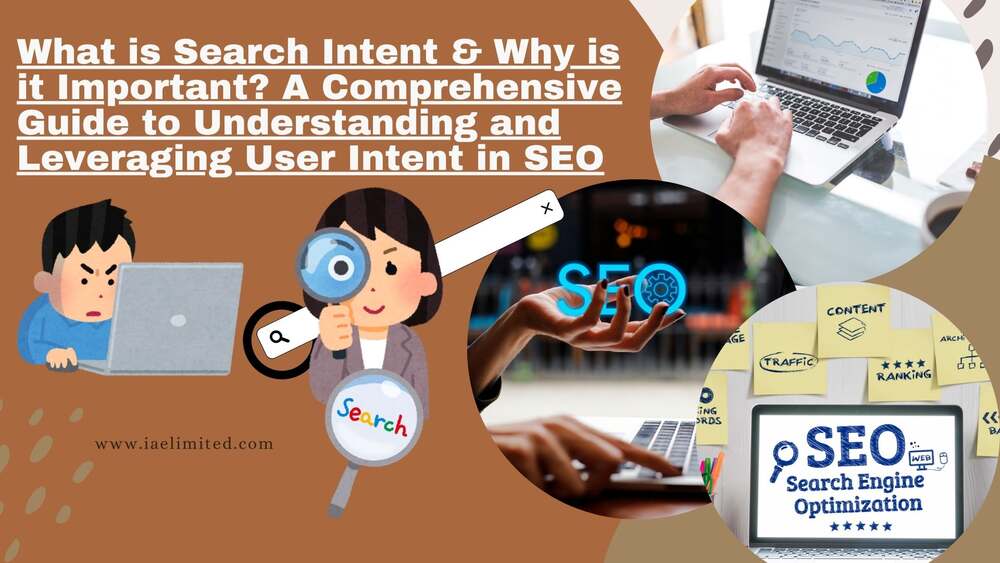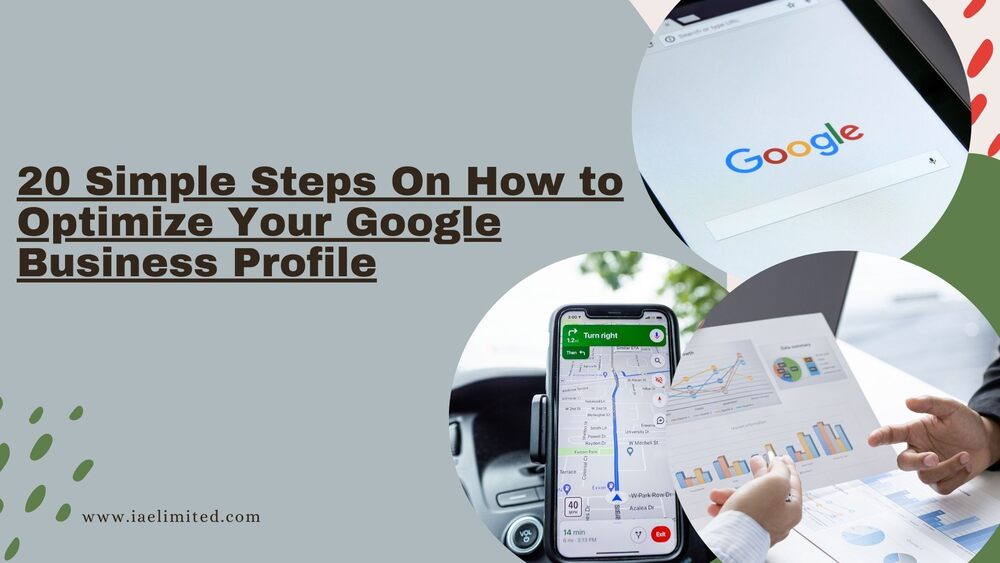
Introduction to SEO for Beginners
Table of Contents
Search Engine Optimization, or SEO, is the practice of improving your website to increase its visibility when people search for products or services related to your business on search engines like Google, Bing, or Yahoo.
A strong SEO strategy helps your website rank higher in search results, driving more traffic to your site and potentially increasing sales.
Understanding SEO Basics
SEO stands for Search Engine Optimization, a method used to make your website more attractive to search engines. This involves using the right keywords, creating quality content, and building backlinks.
Understanding how search engines work is crucial; they use algorithms to decide which sites appear first in search results.
Types of SEO
There are three main types of SEO:
- On-Page SEO: Focuses on optimizing content and HTML source code.
- Off-Page SEO: Involves activities outside your website, like link building.
- Technical SEO: Ensures your website is free of technical issues that can affect its performance in search engines.
Keyword Research for Beginners
Keywords are the terms people type into search engines when looking for information. Keyword research is the process of finding the best keywords to target for your website.
Use tools like Google Keyword Planner or Ahrefs to find keywords related to your niche. Focus on both long-tail keywords (more specific phrases) and short-tail keywords (broader terms) to reach different types of searchers.
On-Page SEO Strategies
On-page SEO involves optimizing elements within your website:
- Title Tags and Meta Descriptions: Make sure your title tags and meta descriptions are compelling and include your main keywords. These are the first things users see in search results.
- SEO-Friendly Content: Write content that is valuable to your audience. Use keywords naturally and break up text with headers and bullet points.
- Header Tags: Use H1, H2, and H3 tags to structure your content. This not only helps readers but also search engines understand your content better.
- Internal Linking: Link to other pages on your website to help search engines crawl your site and keep users engaged.
Off-Page SEO Techniques
Off-page SEO is all about building your website’s authority and trustworthiness:
- Link Building: Acquiring high-quality backlinks from other websites signals to search engines that your content is valuable.
- Social Signals: Engagement on social media can indirectly impact your SEO by increasing the visibility of your content.
- Guest Blogging: Write articles for other websites in your niche to build backlinks and reach a broader audience.
Technical SEO Essentials
Technical SEO ensures your website is optimized for search engines to crawl and index it:
- Site Speed: A fast-loading site provides a better user experience. Use tools like Google PageSpeed Insights to test and improve your site’s speed.
- Mobile-Friendliness: More people use mobile devices to browse the internet. Ensure your site is mobile-friendly to avoid losing potential visitors.
- Schema Markup: Implementing schema markup helps search engines understand your content better and can improve your chances of earning rich snippets in search results.
Local SEO Tips for Beginners
Local SEO is important if you have a physical location or serve a specific geographical area:
- Google My Business: Claim and optimize your Google My Business profile. Include your business name, address, phone number, and operating hours.
- Local Citations: Ensure your business is listed consistently across local directories.
- Reviews: Encourage satisfied customers to leave positive reviews, as they can influence local search rankings.
SEO Tools for Beginners
Using the right tools can make your SEO efforts more effective:
- Google Analytics: Track your website’s traffic and see which keywords are driving the most visitors.
- SEO Plugins for WordPress: If you use WordPress, plugins like Yoast SEO or Rank Math can help optimize your content.
- SEO Auditing Tools: Tools like SEMrush and Ahrefs allow you to audit your site for SEO issues and find opportunities for improvement.
Monitoring and Measuring SEO Success
Tracking your SEO performance is essential to know if your efforts are paying off:
- Key SEO Metrics: Monitor metrics like organic traffic, bounce rate, and conversion rate.
- Google Search Console: This free tool from Google provides insights into how your site is performing in search results and alerts you to any issues.
- SEO Reports: Regularly review SEO reports to understand what’s working and what needs adjustment.
Common SEO Mistakes to Avoid
Avoid these common SEO mistakes to ensure your efforts are effective:
- Keyword Stuffing: Overusing keywords can hurt your rankings. Focus on creating content that reads naturally.
- Ignoring Mobile Optimization: Make sure your site works well on mobile devices.
- Not Updating Content: Regularly update your content to keep it relevant and fresh.
- Neglecting Technical SEO: Ignoring technical aspects can lead to issues that affect your rankings.
Advanced SEO Tactics for Growth
Once you’ve mastered the basics, consider these advanced tactics:
- Content Clustering: Group related content together to improve your site’s structure and make it easier for search engines to understand.
- Voice Search Optimization: Optimize for voice search by targeting conversational keywords.
- Video SEO: Use video content to reach more people. Optimize video titles, descriptions, and tags.
- AI in SEO: Leverage AI tools for keyword research, content creation, and data analysis.
SEO for E-Commerce Websites
E-commerce sites need specialized SEO strategies:
- Product Page Optimization: Use unique descriptions, high-quality images, and user reviews.
- User-Generated Content: Encourage customers to leave reviews and share their experiences.
- Duplicate Content Issues: Avoid duplicate content, which can hurt your rankings. Use canonical tags where necessary.
- Seasonal SEO: Plan your SEO around holidays and sales events to capture seasonal traffic.
How to Learn SEO
There are many resources available to help you learn SEO:
- Free Resources: Websites like Moz and Ahrefs offer free guides and tutorials.
- Online Courses: Platforms like Coursera and Udemy provide structured SEO courses.
- SEO Portfolio: Start your own blog or work on projects to build an SEO portfolio.
- SEO Communities: Join forums like Reddit or SEO-related Facebook groups to learn from others.
Making Money with SEO
SEO skills can be profitable:
- Freelancing: Offer SEO services to businesses in need of optimization.
- Agency Work: Join an SEO agency to work with a variety of clients.
- Success Stories: Many SEO experts have built successful careers by mastering this skill.
SEO as a Career Path
SEO can be a rewarding career:
- Job Roles: Positions include SEO specialist, content marketer, and SEO analyst.
- Getting Started: Build your skills, gain experience, and network in the industry.
- Remote Jobs: Many SEO roles are remote, offering flexibility and work-life balance.
Future of SEO
SEO is constantly evolving:
- AI Impact: AI tools are becoming more integrated into SEO, offering new ways to optimize content.
- Emerging Trends: Keep an eye on trends like voice search and the increasing importance of user experience.
- Preparing for the Future: Stay informed about algorithm updates and adapt your strategies accordingly.
Frequently Asked Questions (FAQs)
- Can a Beginner Learn SEO? Yes, with the right resources and dedication, anyone can learn SEO.
- Do You Need Coding Skills for SEO? Basic HTML knowledge can be helpful but isn’t required.
- Is Math Required for SEO? No, math is not necessary for SEO.
- How Long Does It Take to See Results from SEO? It typically takes 3-6 months to see significant results.
- Can You Do SEO Yourself? Yes, with the right tools and knowledge, you can manage SEO on your own.
In Conclusion
SEO is a valuable skill for anyone looking to improve their website’s visibility. By understanding the basics, using the right tools, and staying updated with trends, you can build a solid SEO foundation.
Start with the tips outlined in this guide and continue learning and experimenting to see the best results. In case you missed it, we recently published a post on, How to Build a Successful Career in Digital Marketing in 2024.

Additional Resources
For further reading and tools:
- SEO Blogs: Follow industry blogs like Moz, Ahrefs, and Search Engine Journal.
- SEO Books: Read books like “The Art of SEO” by Eric Enge and “SEO 2023” by Adam Clarke.
- SEO Tools: Try tools like SEMrush, Ahrefs, and Moz for advanced SEO analysis and optimization.





